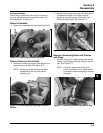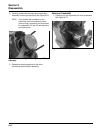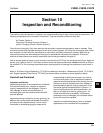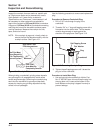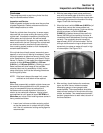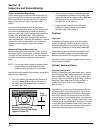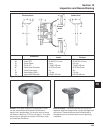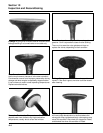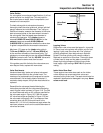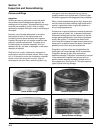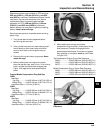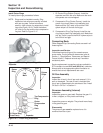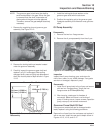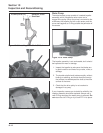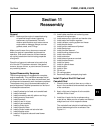
10.6
Section 10
Inspection and Reconditioning
Leakage: A poor grind on face or seat of valve will allow
leakage resulting in a burned valve on one side only.
Coking: Coking is normal on intake valves and is not
harmful. If the seat is good, the valve could be reused
after cleaning.
Excessive Combustion Temperatures: The white
deposits seen here indicate very high combustion
temperatures, usually due to a lean fuel mixture.
Gum: Gum deposits usually result from using stale
gasoline. Gum is a prevalent cause of valve sticking.
The cure is to ream the valve guides and clean or
replace the valves, depending on their condition.
Stem Corrosion: Moisture in fuel or from condensation
are the most common causes of valve stem corrosion.
Condensation occurs from improper preservation during
storage and when engine is repeatedly stopped before
it has a chance to reach normal operating temperatures.
Replace corroded valves.
Overheating: An exhaust valve subject to overheating
will have a dark discoloration in the area above the
valve guide. Worn guides and faulty valve springs may
cause this condition. Also check for clogged air intake,
and blocked fins when this condition is noted.




